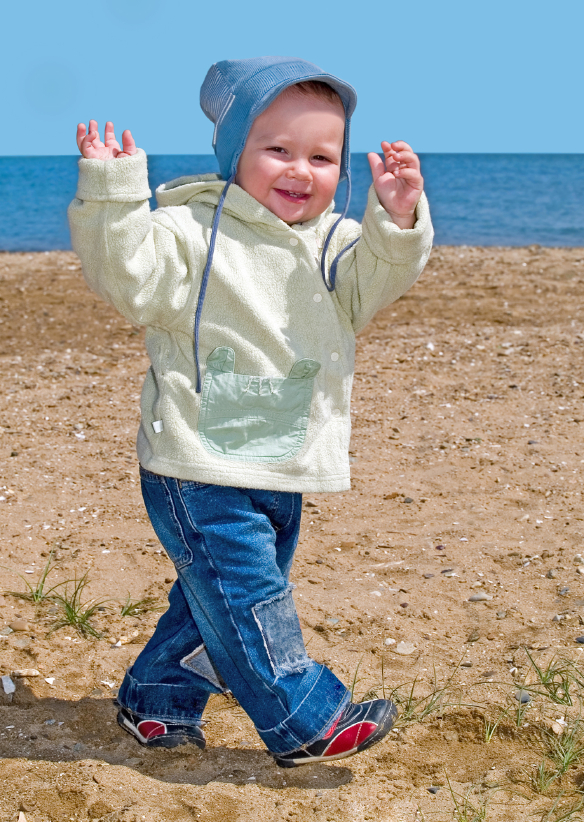Just about every day, I come across someone who is suffering from the Dichotomy of Parenting. The Dichotomy of Parenting happens to nearly every parent at least once during their child’s lifetime. The ‘Dichotomy’ is initially hard to avoid that is until parents recognize the dichotomy and channel their energies appropriately.
All Parents Have Been Here
Parents of new-born babies can’t wait until their child learns to walk – that is until the child actually starts walking. Once the child starts walking, the parents – who dreamt of the day when their child could walk on their own – now want the child to walk slower and insist that their child hold their hand with every step. Parents – who once longed for the day when their child would be able to walk – now reminisce and miss not being able to hold and carry their child all the time.
Parents of preschool age children can’t wait until their child is ready for school – that is until the dreadful day when the child tells the parent they don’t need them to walk them into the school any longer. The former preschooler now first grader sees the bigger kids walking by themselves and views holding mom’s or dad’s hand and walking into the school an embarrassment rather than an assistance. The “I can’t wait until my child goes to school parent”, now sits in the car teary eyed and saddened as they watch their child walk off to school – alone without their parental crutch.
Mothers and fathers who anxiously await the day when their children start high school often find that excitement short-lived. The pre-teen who was once your inseparable side kick suddenly kicks you to the side. Now your teenage high school student has no more time to do those things that previously joined the two of you at the hip. Moms and dads formerly professing a desire for more independent children soon find their own emancipation from their Mini Mes an overrated experience.
The Dichotomy of Parenting
During these moments when parents are making these proclamations about the anticipated evolution and growth of our children, we are unaware of the duality of our declarations. We want our children to progress towards fully functioning independent adults but somehow we expect our children’s personal growth and development to occur without being less dependent on us.
Expecting children to grow into fully functioning adults while remaining dependent on parents is like going to Siberia and expecting Hawaii’s weather. Complete and total nonsense (absent global warming of course).
Instead of lamenting the evolutionary progression of our children, parents would be wise to recognize and acknowledge the Dichotomy of Parenting. The Dichotomy of Parenting consists of four phases. The four phases are vision, ascent, realization and descent.
The Dichotomy of Parenting Is Chaotic
This is how the dichotomy of parenting works. Parents have a vision for their child’s future, the child begins to ascend towards the parent’s vision, the child realizes the parent’s vision and then the parent descends into the valleys of depression, inadequacy, narcissism or self-pity.
Specifically, the parent can’t wait for their child to start walking, the child learns to walk, the child wants to walk alone and then the parent bemoans that the child wants to walk alone, makes the child feel guilty for having the nerve to want to go at their own pace and in their own direction. Substitute walking with any other area (hanging with friends, moving to another location, traveling alone, dating, marriage, etc.) and the process and outcome is the same. Parents want independence and dependence simultaneously. This is utter nonsense!
Parents Create Chaos
What parents fail to consider throughout the four phases is that these four phases should only be three phases and that there should not be a dichotomy at all. Phases one through three will be replicated for the entire maturation of a child’s life. Step four which causes the dichotomy is optional and only serves to make a child’s life chaotic. So instead of reaching phase four, being sad or nostalgic about a child’s independence, parents should have a plan – a checklist of all the things they want their child to accomplish.
A plan with a checklist will give parents pause to celebrate rather than lament another step towards a child’s independence. A plan will also detail for the parent all the work remaining to be done so that parents never lose sight of the LONG-TERM task at hand – to raise independent adults who are prepared to leave the world a better place than it was when they arrived. With a plan and checklist, once the child masters the task at hand (feeding themselves, walking alone, making friends, going to college, selecting a mate, etc.) parents can place a check mark beside the achievement and look forward to the next assignment rather than feeling nostalgic about an achievement and making your child feel sad or guilty about their accomplishment.
Watching our children grow-up does not have to be both exhilarating and terrifying. Parenting with a plan allows parents to be proud of their child’s evolution without being self-absorbed, nostalgic or anxious about their role as a parent moving forward.
Children will always need great and intentional parents.
Don’t make your child suffer through your emotional roller-coaster, the Dichotomy of Parenting. Develop a plan for the life you want your child to have. Growing up is far too challenging and much too important not to do so.
What’s your plan for parenting? What are the specifics of the plans you have detailed for your child’s life?
